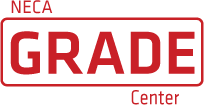- About NECA
About NECA
NECA, a public agency devoted to the improvement of national health and future of healthcare - What we do
What we do
NECA, a public agency devoted to the improvement of national health and future of healthcare - Publication
Publication
NECA, a public agency devoted to the improvement of national health and future of healthcare - International Cooperation
International Cooperation
NECA, a public agency devoted to the improvement of national health and future of healthcare - NECA GRADE Center
NECA GRADE Center
NECA, a public agency devoted to the improvement of national health and future of healthcare
Healthcare Research Reports
| SUBJECT |
PUBLISH
Research on methodologies for evidence-based healthcare decision-making processes in Korea |
|---|---|
| PUBLISH DATE | 2011.10.31 |
| FILE |
 [Executive Summary] Research on Methodologies for Evidence Based Healthcare Decision Making Process in Korea.pdf [Executive Summary] Research on Methodologies for Evidence Based Healthcare Decision Making Process in Korea.pdf
|
Summary
With the introduction of the Positive Listing System of new pharmaceuticals in 2006, economic evaluation emerged as a standard methodology for decision-making in healthcare. Since then, economic evaluation is used as a more popular criterion for setting priorities in the healthcare sector. There is a clear standard in the conventional economic evaluations (cost-benefit analysis: CBA) used in other areas, i.e. it worth when benefit is greater than cost. On the other hand, economic evaluations in healthcare is mostly cost-effectiveness analysis (CEA) or cost-utility analysis (CUA), in which the results are drawn by the Incremental Cost Effectiveness Ratio (ICER), which needs an external threshold to judge its worth. The ICER reports how much additional cost is needed for the increment of one unit of effectiveness (or utility) between a higher-cost but more effective treatment and the conventional treatment. There is no universal standard for cost-effectiveness ratio mainly due to different healthcare systems and economic environments of each country, but a certain threshold has been applied in the decision of health insurance reimbursement of new health technology. In the literature, other countries seem to have a predictable standard: $50,000 in the USA or £20,000-30,000 in the UK. In case of Korea, economic evaluation becomes more popular than ever, but there are uncertainties which seem to evoke conflicts among the interested groups. Even though transparency is much needed to reduce unnecessary conflicts among the concerned parties, many researchers have questioned the existence of unique standard applicable to all diseases and treatments, given the heterogeneous nature of healthcare. In addition to the heterogeneous characteristics of diseases and treatments, the limited source of data is another major obstacle in comparisons of various economic evaluations in Korea. In this study, the related literature was extensively examined before calculating a threshold for judging the cost-effectiveness in Korea. |
Reference Data
| Journal Publication |
|
|---|
Copyright
|
Creative Commons License  · CC BY-NC-ND
· CC BY-NC-ND
|
Korea Open Government License  · BY
· BY· NC · SA |
|
Contact Us Report & Quote. - Report : +82-2-2174-2883 - Quote : +82-2-2174-2787 |
|
| Prev | Korean Guidelines for the Prophylatic Use of White Blood Growth Factors |
|---|---|
| Next | Development of Conceptual Framework and Organization of the National Healthcare Quality Indicator |

















